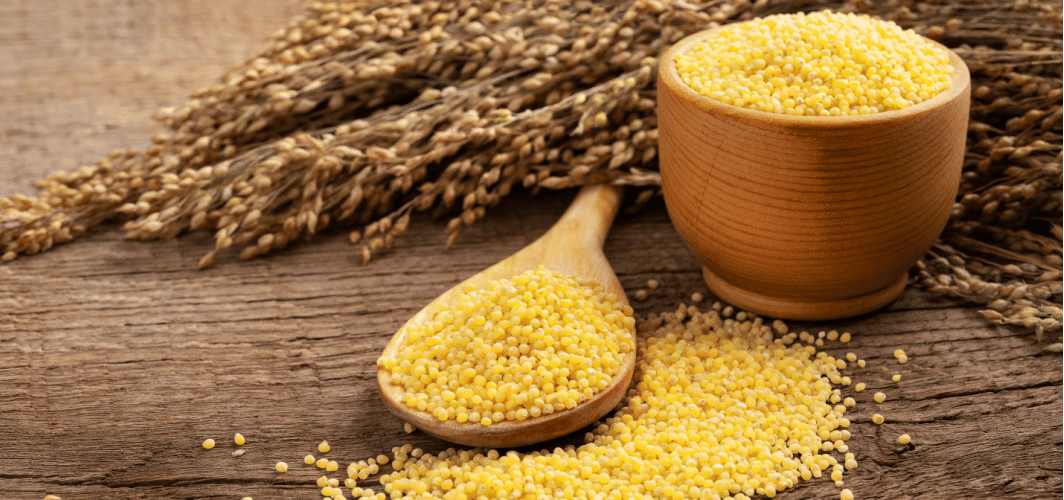General Health
Seasonal Infections — Types, Causes & Symptoms
5 min read
By Apollo 24|7, Published on - 12 October 2023
Share this article
0
0 like

As the seasons change, so does our vulnerability to various infections. Seasonal infections can have a significant impact on public health. During the seasonal viral season, which typically occurs during the monsoon and winter months in India, there is an increased risk of contracting infections. These infections are primarily caused by viruses and can spread rapidly from person to person. Recognising the symptoms of seasonal infections is essential for early detection and management. By understanding different types of seasonal infections, their causes, symptoms, and preventive measures, we can take proactive steps to protect ourselves and our communities.
What are Seasonal Infections?
Seasonal infections are illnesses that occur predominantly during specific times of the year. These infections are often caused by viruses or bacteria and are more common when weather conditions or other environmental factors favour their spread.
Understanding seasonal infections is important as it allows us to take necessary precautions and seek appropriate medical care. By being aware of the patterns and characteristics of seasonal infections, we can make informed decisions to protect ourselves and our loved ones.
Common Types of Seasonal Infections in India
India experiences a diverse range of seasonal infections throughout the year due to its varied climate and environmental conditions. Some common types of seasonal infections in India include:
1. Influenza (Flu)
Influenza, commonly called the flu, is a highly contagious respiratory illness that peaks during the winter months in India. It is caused by influenza viruses and spreads through respiratory droplets. The symptoms of flu include:
- Fever
- Cough
- Sore throat
- Runny nose
- Body aches
- Headache
- Fatigue
Vaccination is the most effective way to prevent influenza. Getting vaccinated not only protects you but also reduces the risk of spreading the virus to vulnerable individuals.
2. Dengue Fever
Dengue fever is a viral infection transmitted by mosquitoes, particularly during the monsoon season in India. Dengue can sometimes progress to a severe form known as dengue haemorrhagic fever, which can be life-threatening. The symptoms may include:
- High fever
- Severe headache
- Joint pain
- Muscle pain
- Rash
- Persistent vomiting
- Bleeding gums
- Difficulty breathing
3. Gastrointestinal Infections
Gastrointestinal infections, or food poisoning, can occur throughout the year but are more prevalent during the summer season in India. Bacterial pathogens like Salmonella are often responsible for these infections, which are primarily caused by consuming contaminated food or water. Symptoms include:
- Abdominal pain
- Diarrhoea
- Vomiting
- Dehydration
Causes of Seasonal Infections
Seasonal infections are caused by a variety of factors, and the specific causes can vary depending on the type of infection and the environmental conditions. Here are some common causes of seasonal infections:
1. Weather Conditions
Changes in temperature, humidity, and rainfall greatly contribute to the occurrence of seasonal infections. As the weather shifts, our bodies may take time to adjust, making us more vulnerable to illness. Hot weather, for instance, promotes the growth and transmission of bacteria, increasing the risk of bacterial infections.
2. Vector-borne Diseases
Vectors, like mosquitoes, play a significant role in spreading diseases such as dengue and malaria during the seasonal viral infection period. Stagnant water accumulated during monsoons becomes an ideal breeding ground for mosquitoes.
3. Weakened Immune System
Individuals with weakened immune systems are more susceptible to seasonal infections. Factors such as age, chronic illnesses, and certain medications can compromise our immune response, making us more prone to viral and bacterial infections.
Treatment Options for Seasonal Infections
Treatment for seasonal infections varies depending on the type of infection and its severity. Here are general approaches to the treatment of common seasonal infections:
1. Flu Treatment
If you do get infected with the flu, antiviral medications can help reduce the duration and severity of symptoms. It is important to consult a doctor before taking any medication. Alongside medication, home remedies like staying hydrated, getting enough rest, and using over-the-counter pain relievers can help alleviate flu symptoms.
2. Dengue Fever Treatment
There is no specific antiviral treatment for dengue fever; however, supportive care is provided to manage the symptoms and complications associated with the disease. Resting, staying hydrated, and monitoring platelet count are essential elements of dengue fever treatment. If you experience severe symptoms or complications, seek immediate medical attention.
3. Gastrointestinal Infection Treatment
For gastrointestinal infections, managing symptoms primarily includes replacing fluids and electrolytes lost through diarrhoea and vomiting. Drinking plenty of fluids, including oral rehydration solutions, can help prevent dehydration. Adjusting your diet to include easily digestible foods and avoiding spicy or fatty foods can also aid in recovery. If symptoms worsen or persist, consult a doctor.
Prevention of Seasonal Infections
Preventing seasonal infections involves adopting various strategies to reduce the risk of exposure to pathogens and promoting overall health and hygiene. Here are key measures for preventing seasonal infections:
1. Vaccination
Getting vaccinated is necessary to protect yourself against seasonal viral infections. It is highly recommended to get an annual flu shot, especially during the viral season. These vaccines are designed to target specific strains prevalent during each season, providing you with better protection. By getting vaccinated, you not only reduce your chances of contracting the virus but also lower the severity of symptoms if you do get infected.
2. Personal Hygiene Practices
Practising good personal hygiene plays a significant role in preventing the spread of seasonal viral infections. Washing your hands frequently with soap and water for at least 20 seconds helps eliminate any viruses present on your hands.
It is also essential to maintain cleanliness in your living spaces and public areas by regularly disinfecting surfaces and frequently touched objects.
3. Environmental Measures
Taking proactive measures to prevent mosquito breeding grounds and maintaining proper food hygiene can significantly reduce the risk of seasonal viral infections. Eliminating stagnant water sources around your home helps eliminate mosquito breeding sites, minimising the chance of diseases like dengue fever.
Additionally, practising safe food handling techniques and storing food at appropriate temperatures prevents gastrointestinal infections caused by contaminated food.
Conclusion
Seasonal infections are common during certain times of the year when particular viruses are more prevalent. These infections can affect anyone, but certain populations such as children, elderly individuals, and those with weakened immune systems may be more susceptible. It is crucial to prioritise preventive measures to reduce the risk of contracting seasonal infections. By staying informed about seasonal infections, being proactive in prevention, and seeking appropriate medical care when needed, we can minimise the impact of these infections on our health and well-being. Stay healthy, stay safe!
General Health
Consult Top Infectious Disease Physicians
View AllFrequently Asked Questions
How long do seasonal viral infections last?
How long do seasonal viral infections last?
Are antibiotics effective against seasonal viral infections?
Are antibiotics effective against seasonal viral infections?
Can I get a seasonal viral infection even if I have been vaccinated?
Can I get a seasonal viral infection even if I have been vaccinated?
Are children more susceptible to seasonal viral infections?
Are children more susceptible to seasonal viral infections?
Can seasonal viral infections be prevented by wearing masks?
Can seasonal viral infections be prevented by wearing masks?
Leave Comment
Recommended for you

General Health
Feet Hygiene Is No Luxury But A Necessity. Know Easy Tips To Maintain It
If cleanliness standards are not upheld, your feet can get exposed to numerous bacterial diseases that may get serious over time. Here are some tips to maintain the hygiene of the feet.

General Health
2023 the International Year of Millets: Know 7 Health Benefits of This Cereal
Millets, one of the world's oldest cultivated grains and staple food, are becoming increasingly popular due to their high fibre, protein, and antioxidant contents. They are also rich in essential amino acids and various vitamins and minerals. Including millet in your daily diet can improve your overall health and well-being.

General Health
Planning To Start A Family? Here Are Some Expert Tips To Enhance Fertility
Many couples around the globe suffer from fertility issues. This is because fertility in both men and women depends on a delicate balance of hormones, which can be affected by various factors, such as food and stress. Read on to find out some helpful tips to improve both male and female fertility.
Subscribe
Sign up for our free Health Library Daily Newsletter
Get doctor-approved health tips, news, and more.
Visual Stories

Science-backed Home Remedies for Burns and Blisters
Tap to continue exploring
Recommended for you

General Health
Feet Hygiene Is No Luxury But A Necessity. Know Easy Tips To Maintain It
If cleanliness standards are not upheld, your feet can get exposed to numerous bacterial diseases that may get serious over time. Here are some tips to maintain the hygiene of the feet.

General Health
2023 the International Year of Millets: Know 7 Health Benefits of This Cereal
Millets, one of the world's oldest cultivated grains and staple food, are becoming increasingly popular due to their high fibre, protein, and antioxidant contents. They are also rich in essential amino acids and various vitamins and minerals. Including millet in your daily diet can improve your overall health and well-being.

General Health
Planning To Start A Family? Here Are Some Expert Tips To Enhance Fertility
Many couples around the globe suffer from fertility issues. This is because fertility in both men and women depends on a delicate balance of hormones, which can be affected by various factors, such as food and stress. Read on to find out some helpful tips to improve both male and female fertility.